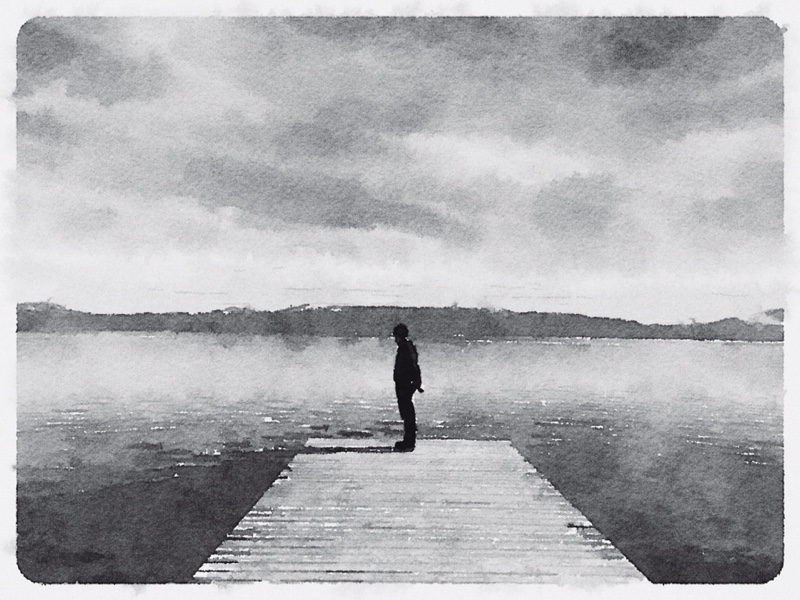 Good morning, midlifers. I have an addition to your reading list that sheds a ray of hopeful light on midlife loneliness — both why it’s common, and how to counter it — that I highly recommend whether or not you’ve personally experienced midlife loneliness.
Good morning, midlifers. I have an addition to your reading list that sheds a ray of hopeful light on midlife loneliness — both why it’s common, and how to counter it — that I highly recommend whether or not you’ve personally experienced midlife loneliness.
Coincidently Josh Cohen’ s “Why is midlife such a lonely time?” appeared in The Guardian yesterday afternoon, about 24 hours after three far-flung high school chums and their families wrapped up a mini-reunion at my home, and concurrent with an early afternoon hike up Coon Mountain with an old friend and her husband who now live on the opposite side of the country.
Failure to fulfill our hopes and ideals so far does not prevent us from succeeding tomorrow. Onward to victory!
These still-fresh encounters offered a comfortable perspective from which to read Cohen’s reflection, possibly insulating me from his bittersweet-but-insightful take on midlife loneliness. Or possibly there’s something else. I’m actually pretty keen on the the Romantic concept of solitude, the “capacity to be alone” that Cohen introduces by way of condolence, conclusion, or both. Just as the simultaneously grounding and inspiring force of friendship nurtures me, healthy doses of aloneness are essential. There’s a different fulfillment in each, but too much of one without the other and I begin to wobble and stall…
Midlife Loneliness Considered
Read the article. Don’t rely upon me to digest it for you. But if you’re curious what stood out for me, here are my scrapbook takeaways:
Middle age is that phase of life in which our possibilities and freedoms seem to contract most dramatically, where our sense of who we are and will be is liable to feel most constrained by pressures from all sides… It’s not hard to imagine what a lonely feeling that can be. (“Why is midlife such a lonely time?“, The Guardian)
If indeed there is a greater propensity to suffering loneliness at midlife (and I certainly understand the ingredients and likely results that Cohen is describing), then it’s no wonder so many people label the malaise they experience as a midlife crisis. Or perhaps a midlife crisis is what sometimes results from midlife loneliness?
In any event, it’s abundantly clear why we all need to transform the midlife crisis into a midlife leap forward into new adventures. Time to dilate our possibilities and freedoms; time to stretch and explore our sense of self. No limits!
Precariousness, Uncertainty, Vulnerability & Failure
Our lives are ever more psychologically and economically precarious; the families, homes, jobs and pensions that we look to as guarantees of a secure future are instead sources of deep uncertainty… These conditions of precariousness are bound to aggravate our vulnerability to the judgment of others and ourselves. The middle-aged person is liable to look in the mirror and see someone who could have done better, who has failed to fulfil their hopes and ideals. (“Why is midlife such a lonely time?“, The Guardian)
It’s never been more true that change is the only constant. Precariousness and uncertainty, even vulnerability are inevitable. But it’s failure is not. Time for a mega mind shift, folks. Time to embrace risk. Sometimes we’re going to bellyflop, but other times we’re going to surpass our dreams. And when we do, it’ll make it that make much sweeter to know that we overcame the dread of failure, that we flew in the face of prudence, that we embraced the possibility of being better, braver, smarter, happier. Failure to fulfill our hopes and ideals so far does not prevent us from succeeding tomorrow. Onward to victory!
Loneliness & Solitude
What Freud called psychoanalytic neutrality isn’t surgical coldness but a kind of benign receptivity, a willingness to make yourself available to whatever someone wants to tell you. For the psychoanalyst DW Winnicott, this way of being with someone cultivates a “capacity to be alone” that is very different from loneliness — closer to what the romantic poets called solitude. It is rooted in the infant’s early intuition of the continuing existence of her mother, enabling her to feel the presence of someone even when alone. This intuited presence provides an emotional lining that helps us feel less helplessly dependent on others. (“Why is midlife such a lonely time?“, The Guardian)
In other words, midlife loneliness is more a symptom of self doubt and insecurity than of truly being adrift, abandoned by companions (old and new). It’s a perception shaped by the overwhelming circumstances of frenetic midlife obligations, the shadow of mortality, and the creeping anxiety of unfulfilled ambitions and passions. But perceptions are fickle, fleeting, and often inaccurate. Perceptions are not reality. Perceptions are alterable.
Perceptions are… often inaccurate. Perceptions are not reality. Feeling alone is not the same as being alone.
Feeling alone is not the same as being alone.
Try to welcome intermittent solitude. Think of it as an emotional or psychological massage. Embrace it as a time and space for recovery, healing, rest. Honor it as an opportunity to dust off your dreams and set new goals. Before long you may find yourself longing for a little more solitude!
In the age of instantaneous social media feedback, braggadocio, and gratification it’s no wonder that midlife loneliness creeps in from time to time. It’s inevitable. It’s also harmless. Even healthy.
Shift perspective and swap midlife loneliness for interstitial bliss. It’ll pass before you know it.